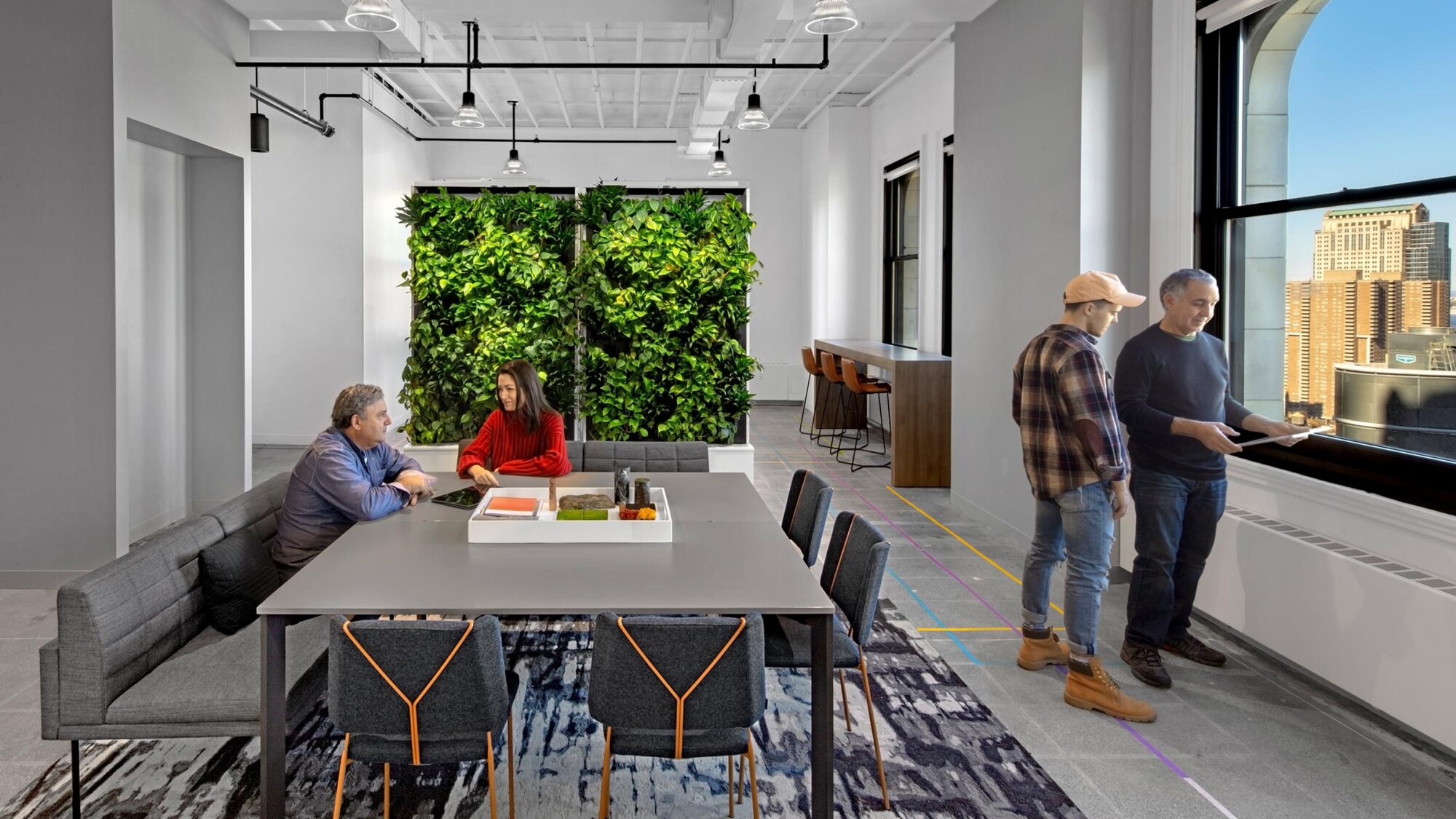WFH is slowly becoming the new norm for some and whilst other employees still await a full return to the office, many are hopeful that this will be an opportunity for change – a time to reflect on the importance of workspace and to rethink how it can better serve the people that inhabit it.
The pandemic has taught us a lot about spaces, yet our focus tends to gravitate towards the negative and what we have lost, particularly the loss of meaning it has brought to certain spaces and the big question: if we can work without an office, do we even need one? However, whilst this provides us with a valid starting point for a discussion around the future of workspaces, there are two sides to the coin and arguably the pandemic has proven the value of workspace and given us an opportunity to rethink its provision and its purpose to people and businesses.
The rising importance of flexible working has encouraged businesses to shift their focus from the previously dominant ‘hub and spoke’ style approach – reliant on a large centralised HQ from which everything operated – to improving the smaller ‘spoke’ sites that reduce employee commutes times, reduce carbon emissions and increase productivity.
Electronics retailer Currys recently made the decision to relocate from their previous HQ in Acton to the WeWork at 10 York Road, London. The move has enabled Currys to continue providing a central location where people can meet in-person and collaborate but more excitingly provided employees with access to a network of satellite offices around the world. By engaging with space, in its nature and provision, they have widened their offering of choice and enabled greater flexibility to their employees.
The same way shops still hold value in a world dominated by online retail and e-commerce, the pandemic has shown us that workspace is no less important and instead we must change our approach to what it means and how we use it in order to effectively respond to the needs of today.
By being deprived of so much that was previously taken for granted, we now have an even greater sense of what we want from our days and from our lives – we all want to spend our time better. Going forward, it is becoming ever more important that companies who are able to prioritise choice and flexibility will create more meaningful places for their employees and with this, shape the future.
